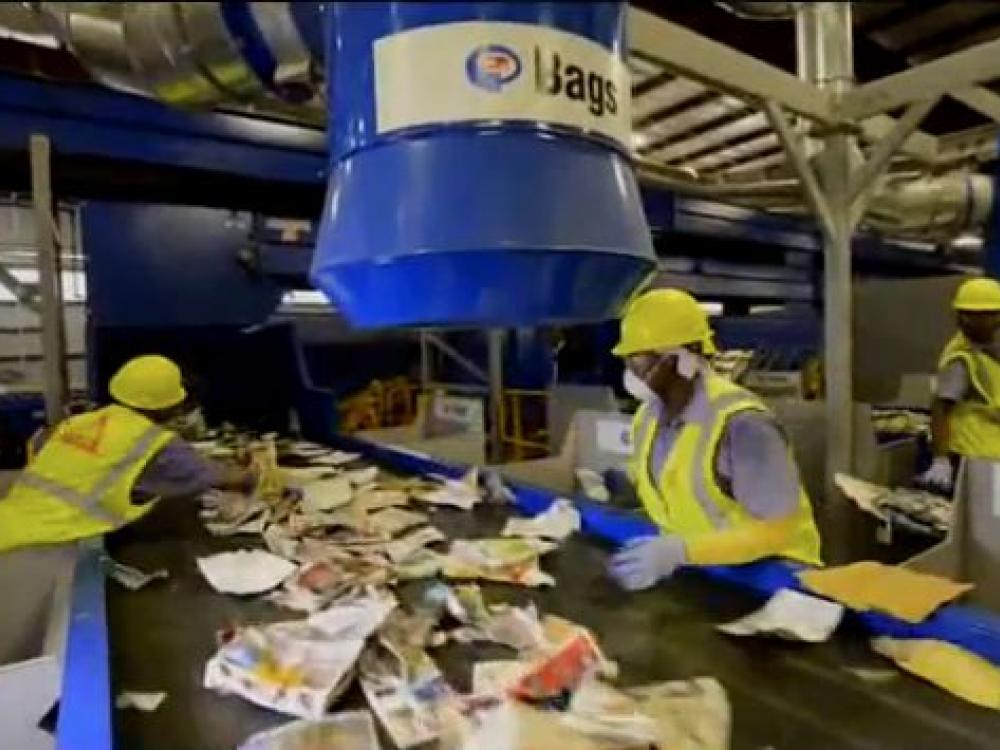
Sept. 21, 2015
According to U.S. recycling statistics, recycling has vastly improved each year since the first U.S. recycling center opened its doors in 1896, but it has a long way to go before reaching perfection.
Recently, an article in the Washington Post reported a three-year trend of shrinking profits and rising costs for U.S. municipalities. According to the article, by pushing to increase recycling rates with larger bins — while demanding almost no sorting by consumers — the recycling stream has become increasingly polluted and less valuable.
Local recycling professionals admit that these are challenging times for the industry.
Heather Douglas, president of North Texas Corporate Recycling Association, observes that whether a particular city loses money on recycling depends on their waste streams – some have higher concentrations of non-money making material. For example, glass provides little revenue and often breaks, contaminating paper, plastic and other materials.
 In addition, those communities with more effective education programs have cleaner recycling streams, which improves revenue.
In addition, those communities with more effective education programs have cleaner recycling streams, which improves revenue.
“It’s a little confusing because not all recycling facilities accept the same thing. Keller might not accept the same thing that McKinney accepts.”
When asked if she thought cities are recycling more items, she responded positively, but there again that may be why we’re losing money by recycling everything.
“You’re not doing as well as those people who focus on high yielding items.”
Murray Myers, coordinator of Waste Diversion for the city of Dallas, can see that with commodities as they are now it’s difficult to make money.
“It’s cyclical and it’s presently in a low area, but it will get back up to normal numbers,” he assures. “Dallas residents are improving and tonnage percentages support that. There’s still room for improvement, but we’re doing a better job,” he says.
Tony O’Sullivan, also coordinator of Waste Diversion for the city of Dallas, shares the same sentiment.
“I have been in the waste management business 20 years. The value of recycling rises and rises again,” he acknowledges. “Due to changes in oil prices, I think that recycling goes into a phase of change every three or four years. We are presently in a stage of change with new attitudes and emphasis.”
Kim Mote, assistant director Code Compliance Department Solid Waste Services Division for the city of Fort Worth, says that the recycling market plays on the commodity market. It has always been very volatile. In 2008, when the economy was bad, conditions were worse.
He said if residents adhered to the city’s recycling guidelines, it would lower costs.
 “It costs money to separate good material from bad material. Contamination is a concern for the city of Fort Worth,” he says. “Depending on how the local community has set up the contract with their processor, their revenues from recycling can go down,” he says. “The contracts are usually set on processing fees and revenue from the sale of materials. If the market falls out, there is very little revenue to share.”
“It costs money to separate good material from bad material. Contamination is a concern for the city of Fort Worth,” he says. “Depending on how the local community has set up the contract with their processor, their revenues from recycling can go down,” he says. “The contracts are usually set on processing fees and revenue from the sale of materials. If the market falls out, there is very little revenue to share.”
How can residents help keep losses down for their city’s recycling program? Sources stress how important it is to know what can go in your recycling bin. Part of the confusion is that cities have different policies so when someone moves from one city to another, they may not realize their city's guidelines have changed. The good news is that records show that since 2002, recycling tonnages have gradually increased; opportunities, including household hazardous waste, to divert from landfills are continually in the works.
Douglas says that she hopes that cities never reach the point of charging residents for recycling, but she does see the possibility. She concurs with others that recycling commodities fluctuates and this time next year, recycling could be bringing hundreds of dollars per ton. She adds that with limited landfill space, recycling is definitely good, a necessity for the future of North Texas, and that there should be legislative measures perpetuating recycling.
Mote agrees that North Texans can’t throw everything away in a landfill.
“We need to find the best and better ways to recycle materials,” he implores. “We are throwing away a lot that has value.”
Sign up for the weekly Green Source DFW Newsletter to stay up to date on everything green in North Texas, the latest news and events. Follow us on Facebook, Twitter and Pinterest.









